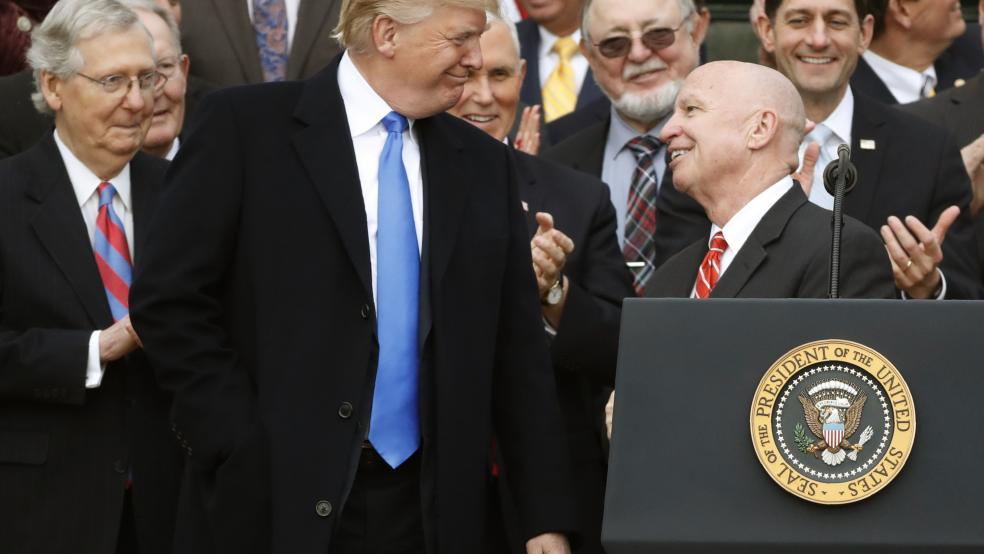Saying they want to fulfill a pledge made by President-elect Donald Trump and avoid burdening the economy with higher taxes, Republicans in Congress plan to extend the individual tax cuts passed in 2017 and set to expire at the end of 2025, at a cost of more than $4 trillion in lost revenues over 10 years. But a new analysis from the Congressional Budget Office raises questions about the economic value of extending the tax cuts, finding that it would do little to increase growth while producing a slightly smaller economy in the long run relative to allowing the tax cuts to expire as scheduled.
The tax increase produced by the expiration of the 2017 tax cuts — which mostly affect individual tax rates but also include provisions related to small businesses, estate taxes and the state and local tax deduction (see this summary from Brookings for a full list) — would slow economic growth, CBO said, with real gross domestic product being 0.1% smaller on average from 2025 to 2034, driven in large part by a reduction in aggregate work hours due to higher taxes.
At the same time, higher taxes bring in more federal revenue, reducing borrowing by the government and shrinking deficits by $3.7 trillion over 10 years. Over the long run, less government borrowing lowers interest rates and increases private investment, raising the growth rate.
Overall, the effects basically cancel each other out, CBO said. And by 2034, the economy would be slightly larger if the tax cuts were allowed to expire, relative to extending them. “In CBO’s current-law economic forecast, the expiration of the individual income tax provisions slows the growth of potential GDP in the short run but accelerates it in 2029 and beyond, as the crowding in resulting from smaller deficits offsets the reduction in the labor supply,” CBO said. “Expiration increases the long-term growth of potential GDP by about 6 basis points.”
The political battle ahead: The CBO analysis is not expected to slow the Republican effort to extend the 2017 tax cuts. The biggest hurdle for GOP lawmakers is likely the cost of the extension, though that may be dispensed with easily enough by simply changing the accounting basis for the extension from “current law,” which assumes the tax cuts will expire, to “current policy,” which includes the tax cuts as they currently are — a legal maneuver that would reduce the price tag to $0.
Still, the CBO report provides ammunition to those who oppose the tax cut extension. Saying “the looting has begun,” Senate Budget Chairman Sheldon Whitehouse issued a statement highlighting the analysis. “Far from unleashing record-breaking growth, the next Trump tax scam will make hardworking families worse off, shrink our economy, and blow a $4.6 trillion hole in the deficit,” he said.
Richard Phillips, the tax policy director for Sen. Bernie Sanders, noted on social media that the CBO analysis undermines the Republican argument that tax cuts always boost the economy and usually pay for themselves. “The best economic evidence shows that the Trump tax cuts will reduce, not increase economic growth,” he said. “The idea that growth will pay for the tax cuts is not even right directionally.”
Taxes
Extending the Trump Tax Cuts Won’t Do Much for the Economy, CBO Says

JONATHAN ERNST



